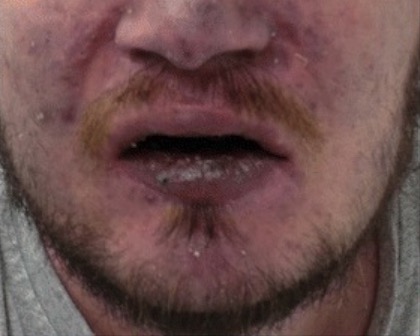Playlist
Show Playlist
Hide Playlist
Treatment of Type 2 Respiratory Failure
-
Slides 10 RespiratoryDisorders RespiratoryAdvanced.pdf
-
Download Lecture Overview
00:01 If you're giving somebody some oxygen for type II respiratory failure and it's worsening the type II respiratory failure, and they're developing a respiratory acidosis, then you might need to consider nasal ventilation, or noninvasive ventilation. Now this is given via nasal or full face mask; what it does, is that unlike CPAP which gives a constant pressure during inspiration and expiration, this is a bi-level form of noninvasive ventilation, where on inspiration, it pushes the air in at a higher pressure than it does when the patient breathes out. That allows a better ventilation of the lung, it counteracts the hypoventilation that the disease is causing and will allow the CO2 to be removed and correction of the respiratory acidosis. And it's known that if you use nasal ventilation or noninvasive ventilation in patients presenting with type II respiratory failure due to COPD for example, then that reduces the need for intubation and mechanical ventilation. But there are some issues with this. The patient has to be able to take the mask on the face and coordinate with the breathing and feel comfortable with it. They have to be cooperative if not too agitated. And also you need to decide whether the patient, if they cannot cope with the nasal ventilation, the noninvasive ventilation, whether they would be suitable for intubation and ventilation and I'll discuss that in a little bit more detail later. Type II respiratory failure then, what are the common causes, well, the acute and chronic causes are pretty much the same, it's largely airways disease, COPD and severe asthma. Sometimes with patient with severe bronchiectasis, although in fact the diseases that cause type I respiratory failure such as interstitial lung disease, when they are end-stage, the CO2 will start to rise as well. So the common presentation in hospital type II respiratory failure would be an exacerbation of COPD. However, there are a range of diseases, which don't affect the lungs directly, but affect the chest wall and the ventilation of the lungs. So for example, obstructive sleep apnea, which we will discuss later in this lecture. That causes obstruction of the upper airways and that leads to type II respiratory failure in some patients. If you give somebody sedative drugs then they are going to breathe at a lower level and that will cause type II respiratory failure. 02:39 This is important because if you give people who have other reasons for type II respiratory failure such as COPD or chest wall disease or obstructive sleep apnea, if you give them opiates and sedatives, you are likely to make the type II respiratory failure worse and that is often something that can be altered in those patients to improve the respiratory failure that they are presenting with. Obesity hypoventilation is a very specific cause of type II respiratory failure, which we will discuss later in this lecture. 03:05 And then if you have problems affecting the chest wall and the muscles and the nerves that control the chest movements during ventilation, and we're talking about Guillam-Barre syndrome, motor neuron disease, various nerve palsies or the kyphoscoliosis that you can get in some patients affecting the ability of the chest movement during ventilation. They will all lead to type II respiratory failure and need to be considered in some patients.
About the Lecture
The lecture Treatment of Type 2 Respiratory Failure by Jeremy Brown, PhD, MRCP(UK), MBBS is from the course Other Respiratory Disorders.
Included Quiz Questions
Which of the following is contraindicated in patients with type 2 respiratory failure?
- Opiates or sedatives
- Nasal ventilation
- Noninvasive ventilation
- Correction of respiratory acidosis
- BiPAP ventilation
Which of the following is NOT a common cause of type 2 respiratory failure?
- Pulmonary embolism
- Kyphoscoliosis
- Guillain-Barré syndrome
- Obstructive sleep apnea
- Obesity
Customer reviews
5,0 of 5 stars
| 5 Stars |
|
5 |
| 4 Stars |
|
0 |
| 3 Stars |
|
0 |
| 2 Stars |
|
0 |
| 1 Star |
|
0 |




